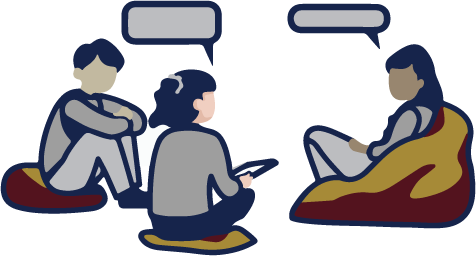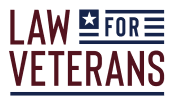Disability Housing Grants
The Department of Veteran’s Affairs (VA) has available to service members and veterans with service-connected disabilities. There are different types of disability housing grants that may help service members or veterans buy or change a home to meet their needs.
What are the types of Disability Housing Grants available?
There are 3 types of Disability Housing Grants:
- The Specially Adapted Housing (SAH),
- The Special Housing Adaptation (SHA), and
- The Temporary Residence Adaptation (TRA).

How do I know which Disability Housing Grant is the best for me?

The main difference between a Specially Adapted Housing grant (SAH) and a Special Housing Adaptation (SHA) grant is the type of disability the service member has sustained.
Specially Adapted Housing grants apply to service members who have injuries that affect their ability to move and to navigate through their home (example: wheelchair ramps).
Special Housing Adaption grants are for veterans who can move throughout the house but require help (example: caregiver) to perform the tasks of daily living.
A Temporary Residence Adaptation (TRA) grant helps with changes to a temporary residence. These grants may apply if the service member rents their home or currently lives with a family member but plans to move out. Such veterans may be eligible for a TRA.

Who is eligible for a Specially Adapted Housing Grant?
Service members or veterans are eligible for a Specially Adapted Housing grant if they meet all the following:
- Plan to buy, build, or change their home,
- Own or plan to own the home, and
- Have a qualifying service-related disability.
What is considered a service-connected disability for a Specially Adapted Housing grant?
- Loss or loss of use of more than one limb,
- Loss or loss of use of a lower leg,
- Blindness in both eyes (with 20/200 visual acuity or less),
- Certain severe burns, or
- The loss, or loss of use, of a foot or leg after September 11, 2001. This loss makes it so the service member cannot balance or walk without the help of braces, crutches, canes, or a wheelchair.
When can a Specially Adapted Housing grant be used?
A Specially Adapted Housing grant may be used to:
How much financial help does the Specially Adapted Housing grant give?
What is considered a service-connected disability for a Special Home Adaptation grant?
Here are examples that may qualify for a service-connected disability:
- The loss or loss of use of both hands,
- Certain severe burns, and
- Certain respiratory or breathing injuries.

When can a Special Home Adaption grant be used?
How much financial help does a Special Home Adaptation Grant give?
Who is eligible for a Temporary Residence Adaptation grant?

Service members or veterans who meet both these requirements are eligible for a TRA:
- Qualify for a SAH or a SHA, and
- Lives in the home of a family member that needs changes to meet the needs of the service member.
A Temporary Residence Adaptation grant defines a family member as a person related to the service member by blood, marriage, or adoption.
Service members who are renting, not living with a family member, are not eligible for TRA.
How much financial help does a Temporary Residence Adaptation Grant give?
Depending on whether the service member is eligible for an adaptive housing grant, the amount changes.
.

If I am approved for a grant, do I have to use all the financial aid at once?

No. Service members or veterans eligible for a Specially Adapted Housing or Special Housing Adaptation grant may use the money from the grant up to 3 times (per grant) in their lifetime.
Depending on the type of changes needed and the bid amount from the builder, service members may only use a portion of their grant money. Any grant money leftover may be used later.
Depending on the project, the funds may be given to the veteran or the contractor directly.
Grant amounts may change depending on the costs of construction materials. Service members may receive up to the maximum grant amount of the last year they used the grant.
How do I apply for a type of Disability Housing Grant?
Applications may be done online using the .
By Mail:Print and .
Mail the application to the closest .
In-person:Bring the completed application to
What if I need assistance with my application?
Email a
Or call an SAH staff member at 877-827-3702.
What happens after I apply?
After the application is received, it will be processed, and a decision letter is sent to the service member.
The status of the application can be checked by signing into

What if my application is denied, can I do something about it?

The VA has for claims submitted by service members that have been denied. Service members may select the decision review or appeal that fits best for their claim.
Check a .
Where can I learn more about Disability Housing Grants?
The VA Housing Grants page includes information and resources for the different types of Disability Housing Grants. For more in-depth information, review the .
Are any other housing grants available for service members with disabilities?
A (HISA) grant helps with home improvements treatment or disability access. HISA is available for service members with or without service-connected disabilities.

A (VR&E) home adaptation grant may provide home adaptations to service members who currently are not able to work because of the effects of their service-connected disability, or who require adaptations to return to work.
